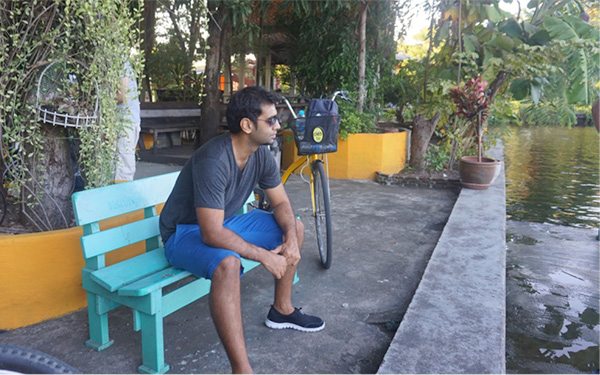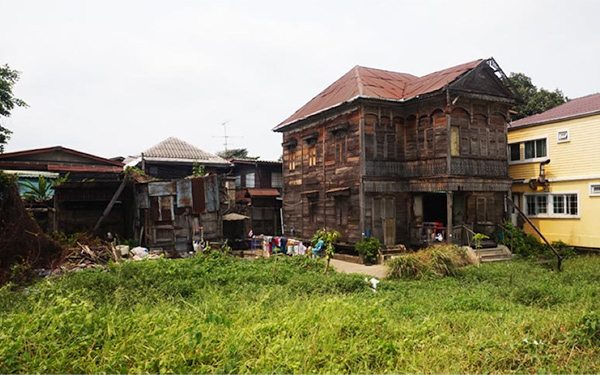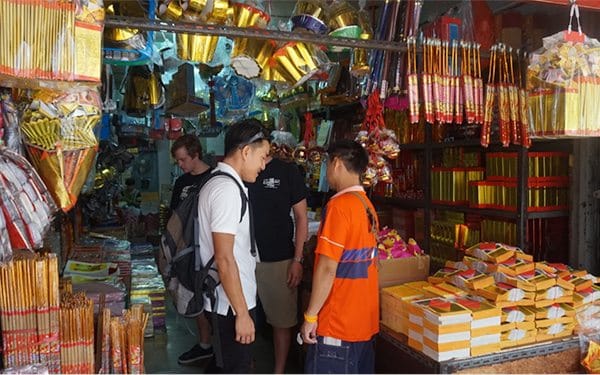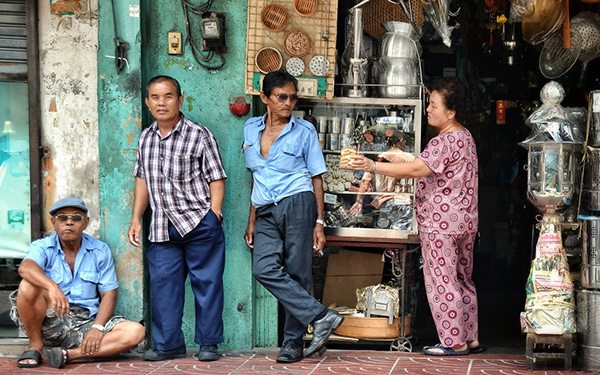I’ll be the first one to admit it: ’till recently, I have always been a superficial traveler.
The way I thought about it was, I’m making money so I “deserve” to spend it in a way that I enjoy.
Call me what you like – a typical tourist, an entitled expat or a selfish person.
But in the past 6 months or so, something has sparked in me.
Perhaps it’s the growing trend of responsible travel posts flooding the internet that have got me thinking…
“There’s more to this life. There’s more to travel and the way we experience things”.

Gone are the days where I travel to places just to see the touristy spots, not venturing out to experience how people truly live in and outside the cities.
Take Bangkok, for example. I’ve lived here for over 20 years and most of that has been spent at school, university, home, work, bars, restaurants and clubs.
So when I decided to start travel blogging, it motivated me to get out of my comfort zone and experience the city fully. I have learned more about Bangkok and the local communities that live within and around it in the last year than in the rest of my entire life here.
How to find Bangkok’s local communities
Now, you might ask whether Bangkok even has a ‘local life’ or space for responsible tourism since the city is so typically tourist-oriented; particularly in Khao San, Silom, Sukhumvit, China Town and, let’s face it, pretty much everywhere else.
As true as that might be, it takes a few steps in the right direction to realize just how much Bangkok actually supports beautiful local communities and how it provides plenty of opportunities for responsible tourism.
Just a few weeks ago, I was at a workshop hosted by Yunus Center and Hive called responsible tourism and social business, where entrepreneurs, academics and travelers came together to discuss the impact of tourism on social issues.
I witnessed experts sharing their insights on the current landscape of responsible tourism and the general consensus was that everyone is concerned about where Bangkok is headed. They also agreed though that all is not yet lost, as long as social business companies, travelers and bloggers shared, respected and practiced the concept of responsible tourism.
With tour-operating companies out there such as Local Alike, Expique, soulcial travel and many others who give back to communities with little to zero negative impact on society, responsible tourism in Bangkok is surely a growing market.

I’ve tried a few of them myself and my experiences have been great so far.
I’ve learned about how the Chinese, Muslim, Christian and Buddhist communities of Thonburi coexist in harmony.
I’ve visited cute shop houses that have been operating for generations, each with their own unique stories.
And I’ve immersed myself in meaningful trips that not only have helped the individuals of those communities, but also enhanced my understanding of the world around me.
What if I don’t want to take a tour?
I know plenty of travelers who simply detest taking tours.
Firstly, these tours are nothing like the typical touristy tours offered by the big travel agencies. And if you’re travelling alone, I highly doubt you can have the same experience of finding unique places hidden in the back alleys of Thonburi, for instance, or be able to hear the stories of local people without a guide.

Sure, you could learn Thai or try your hand at sign language. That is always an (mis)adventure on its own…
But if you absolutely must go on your own or with a group of friends, here are some tips on being a responsible tourist to help you along the way:
- Look for some volunteer work within Bangkok. There are plenty of companies and meetups that dip you right into the ‘responsible tourism’ action.
- Think outward, not inward. Instead of just soaking in the sights and sounds, try to communicate with your surroundings. Even in the touristy spots, there are opportunities to give back. Bangkok’s streets are lined with food sellers who come from local farms and villages. Try to know their story. Maybe even give them a helping hand to sell their produce.
- Do your part in every small way that you can. Use less plastic bags, for example. I still don’t understand how 7-Eleven uses 3 plastic bags for a few bottles of soda or one large bag for a small piece of chewing gum. Just say “mai ow krup”.
- You can’t beat the system but you can choose to support the right things. Just don’t be a d*** about it and lash out on people who don’t feel the same way. You can educate others and help them open their mind but you can’t tell them how to live their life. Beats the whole point of responsible anything.
- Try to avoid visiting only tourist spots. I’m not saying don’t see them, because let’s face it; they are popular for a reason. If it’s your first time in Bangkok, by all means get that cheap massage or go up to the tallest rooftop bar or buy an ‘I love Bangkok’ t-shirt from Chatuchak market. But don’t let that define your whole trip.
- Try new food and keep an open mind. No, eating scorpions at Khao San Road is not how the locals do it. Have you ever seen a single Thai person eating that stuff? I think not.
- Take public transport as much as possible to reduce environmental impact. The khlong sab saen canal boats that run through the city are a marvel because not only do they whiz you past the congested road traffic, but you also get to see how the locals live their lives along the waterway.
- Bang Krachao (Bangkok’s Green Lung) and Thonburi are two excellent places to see some undisturbed local communities at work.
- Support less commercial places (malls, big-chain restaurants, etc.) and keep an eye out for artisanal and local vendors. In the heart of Bangkok, there are certain markets like Artbox, Bangkok Farmers Market and Rod Fai Fa market that provide a platform for small businesses to grow.
I think it’s the little guys that need our help. Don’t you?
Featured image is by Pietro Motta and used under a Creative Commons licence. Other photos by Shayan Naveed.


